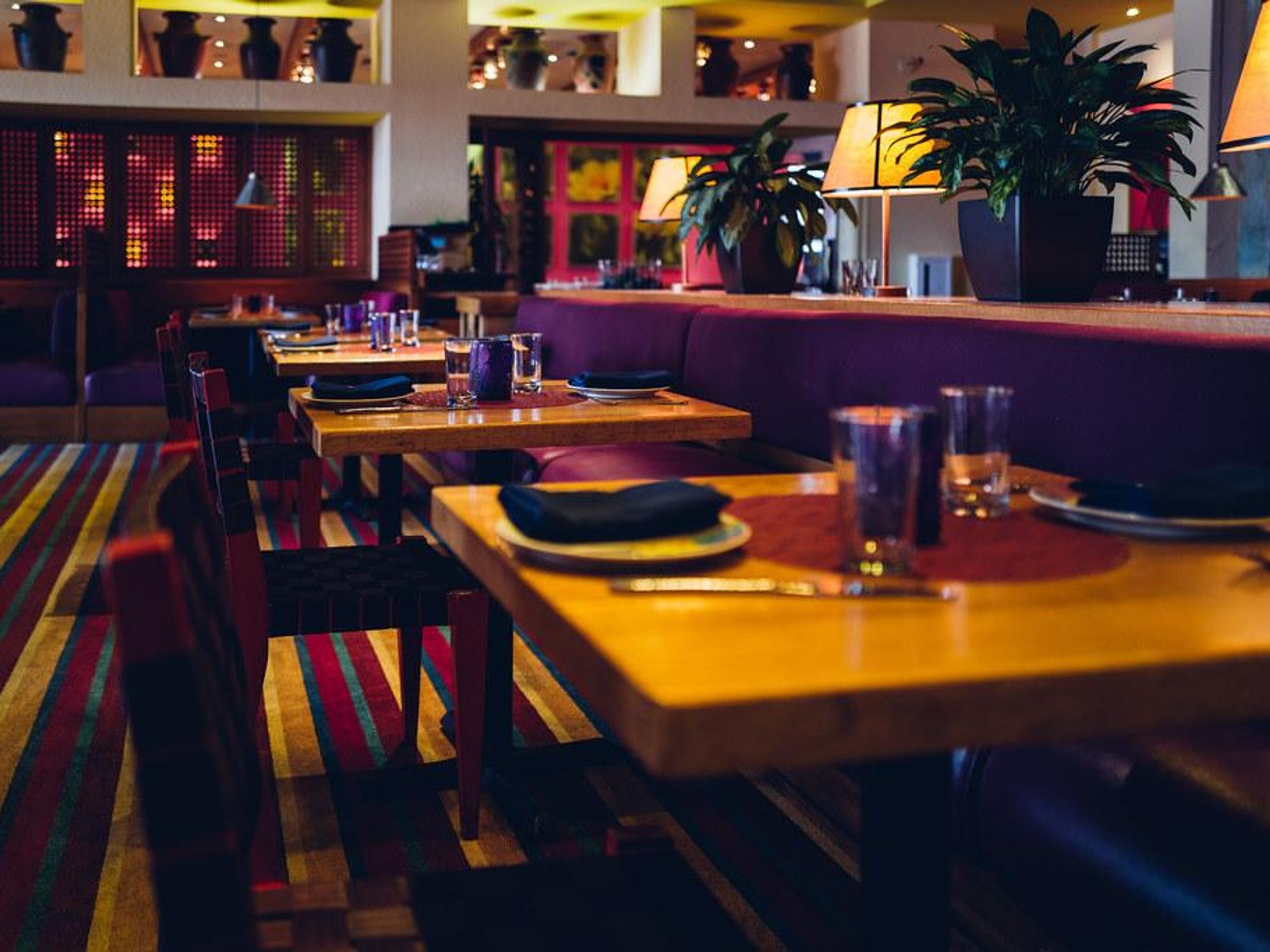This LA Startup is Using NFTs to Create The Season Ticket Holder Experience for Restaurant Patrons
Samson Amore is a reporter for dot.LA. He holds a degree in journalism from Emerson College. Send tips or pitches to samsonamore@dot.la and find him on Twitter @Samsonamore.

People are back to dining out after a steep drop-off in reservations during the pandemic. According to data from OpenTable, the number of reservations made on the app in August and September was higher than the same period of time in 2019.
As writer Amanda Mull recently noted for “The Atlantic,” a large part of this demand has been propelled by the reservation app Resy, an OpenTable competitor that “emerged with a simple proposition: It would show users what was available only at buzzy, well-regarded restaurants, and it would let them join a digital waitlist to maybe, just maybe, get called up for a tough-to-grab table if someone else canceled.”
But what if instead of ever having to worry about reserving a table at your favorite restaurant, you could own it instead? That’s the proposition behind NFTable, a Los Angeles-based startup co-founded by CEO Jordan Udko.
NFTable plays on the ever-alluring concept of being exclusive. Having your spot. Being on the list. The way it works is that NFTable partners with a dining establishment to create an NFT that corresponds to a specific table at said restaurant. In some cases the NFT is also coupled with unique properties— some restaurants opt to throw in complimentary drinks. NFTable then auctions off the NFT on its proprietary private auction platform. For now, those eligible to bid are existing customers at the restaurants who are invited via emails from the establishment.
One of the first adopters of this new technology is Angelini Ristorante & Bar, an upscale Italian-American eatery in the Pacific Palisades run by Amici Restaurant Group.
To start, Angelini Ristorante partnered with NFTable to auction off a 7:00 p.m Friday night reservation at one of its tables. Udko tells dot.LA, the NFT sold for 130 Sol — a cryptocurrency that translates to roughly $4,250. NFTable received 25% of the sale with the rest going toAngelini Ristorante. According to Amici Group operations manager Alessandro Silvestri, the restaurant donated its proceeds to charity. If the NFT is resold on a secondary market, NFTable gets an additional 7.5% of the sale, Udko says.
Silvestri says Angelini partnered with NFTable because Udko and his family were longtime customers at Angelini Ristorante’s sister restaurant, Amici Brentwood.
“The idea seemed solid and it was pretty revolutionary,” Silvestri says. “So we decided that we could help them push the project forward, and they could help us with the revenue.”
The prospect of owning your own restaurant table is, according to Udko, especially appealing as wait times for restaurants continue to soar.
“I think [calling it] season tickets for a restaurant is a great analogy,” Udko adds. He envisions NFTable not just as a utility for fine dining restaurants, but any place with a wait. “Any restaurant that has more demand than and supply is a potential utilizer of the product,” Udko says.
So what happens if the NFT owner doesn’t show up to claim their table?
To circumvent restaurants losing money on tables that are left vacant by the NFT holder, Udko says they can put a 15-minute “grace period” in place. If the NFT holder doesn’t alert the restaurant they aren’t coming or are a no-show for their reservation, the establishment can give the table to another guest.
Like all other NFT products, NFTables are tradable as well. In other words, if someone buys a table at one restaurant and later decides they don’t want it anymore, they can list their NFT to be auctioned off on the same platform.
There’s also the option of temporarily transferring ownership of the table to a friend using a temporary password system.
For now, Angelini Ristorante plans to stick with just one NFT-reserved table since it’s a relatively compact establishment. “I want to be clear that our first priority is our regular customers, especially the locals, so they will always have a kind of preferential channel,” Silvestri says. The limited usage is in part due to the fact that not everyone is on board with this new technology.
“We received emails back with a lot of compliments, and they said, ‘oh, this is so brilliant, it's a genius idea, who is behind it?’” Silvestri says. “And some others were like, ‘oh, this is disgusting, now that you are doing these things your business will go upside down.’”
Still, Silvestri remains optimistic about the new arrangement adding that it doesn't change much, in terms of day-to-day operations. “What we are doing is being innovative,” Silvestri says. “Maybe cryptocurrency will be the biggest flop of the 21st century, or maybe one day we’ll forget about U.S. dollars and we’ll all use coins or blockchain or whatever.”
- Real Estate Is Food Tech's Next Big Frontier - dot.LA ›
- Bored Breakfast Club - dot.LA ›
- Bored & Hungry NFT-Themed Restaurant Still Accepts Crypto - dot.LA ›
- Patron's Jason Yeh On 'The Future of the Consumer Internet' - dot.LA ›
- Why NFT Wellness Center Rafi Lounge Says It Can Survive FTX - dot.LA ›
Samson Amore is a reporter for dot.LA. He holds a degree in journalism from Emerson College. Send tips or pitches to samsonamore@dot.la and find him on Twitter @Samsonamore.





 Image Source: Skyryse
Image Source: Skyryse